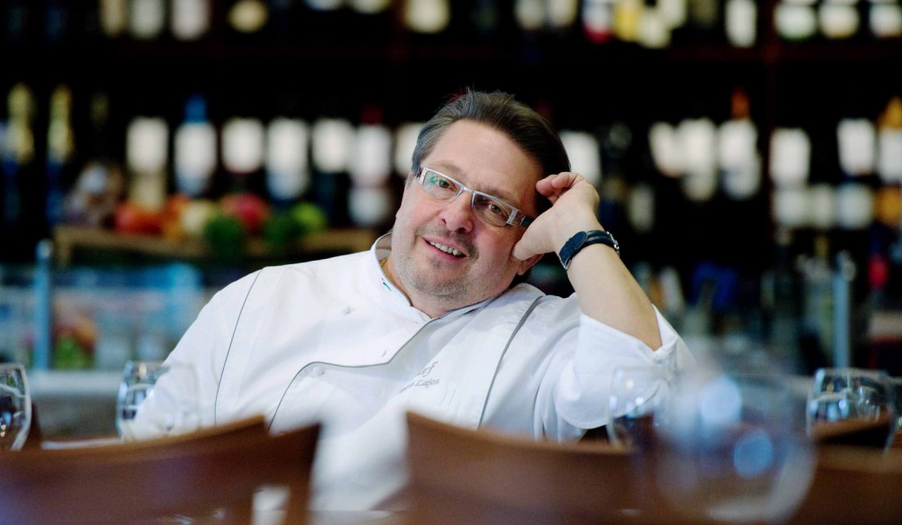We interviewed Lajos Bíró, the chef of Bock Bistro, and he talked about knowledge, luck, being full of oneself, and dreams to be 40 once again.
We Love Budapest: Could you summarize your career so far? What milestones did you pass before getting to Bock Bistro?Lajos
Bíró: I started working for the American Embassy at 1975, where I stayed until 1981. It was here that I developed a liking for the Chinese cuisine, which enabled me to be the chef of Vörös Sárkány (Red Dragon) for the next six years. Then in 1988 I took part in some hospitality balls in Bad Vöslau, where I got to know some previously unknown technologies.
WLB: What technologies?
LB: Everything there was prepared a la minute. There was chicken stew a la minute, which I had thought to be impossible, and hadn’t even heard of it. They made marvelous dishes from raw meat under 10 minutes without thickening or the use of any flour. The cuisine of Múzeum Kávéház, where I worked full-time until 2004, was based on this knowledge. I met János Kiss in 2002, who was the international executive chef of Hyatt, and whom I regard as one of the most influential mentors of my career. He is the one who taught me the sous-vide technology, which is a determining culinary practice at BockBistro up to this day.
It was around this time that I met Tamás Molnár B. the “gastro-revolutionist”, who affected me with his highly critical point of view. We started to really look around in the world to observe the Michelin-star holders. In 2002, with the assistance of János Kiss, I could visit Michel Richard at the Citronelle in Washington, D.C. It was there that I had to realize that Molnár B. was totally right all along in saying that we were pretty low professionally despite being full of ourselves, but we didn’t have a clue about what the world was doing. We employed ostrich policy, and some of us still do.
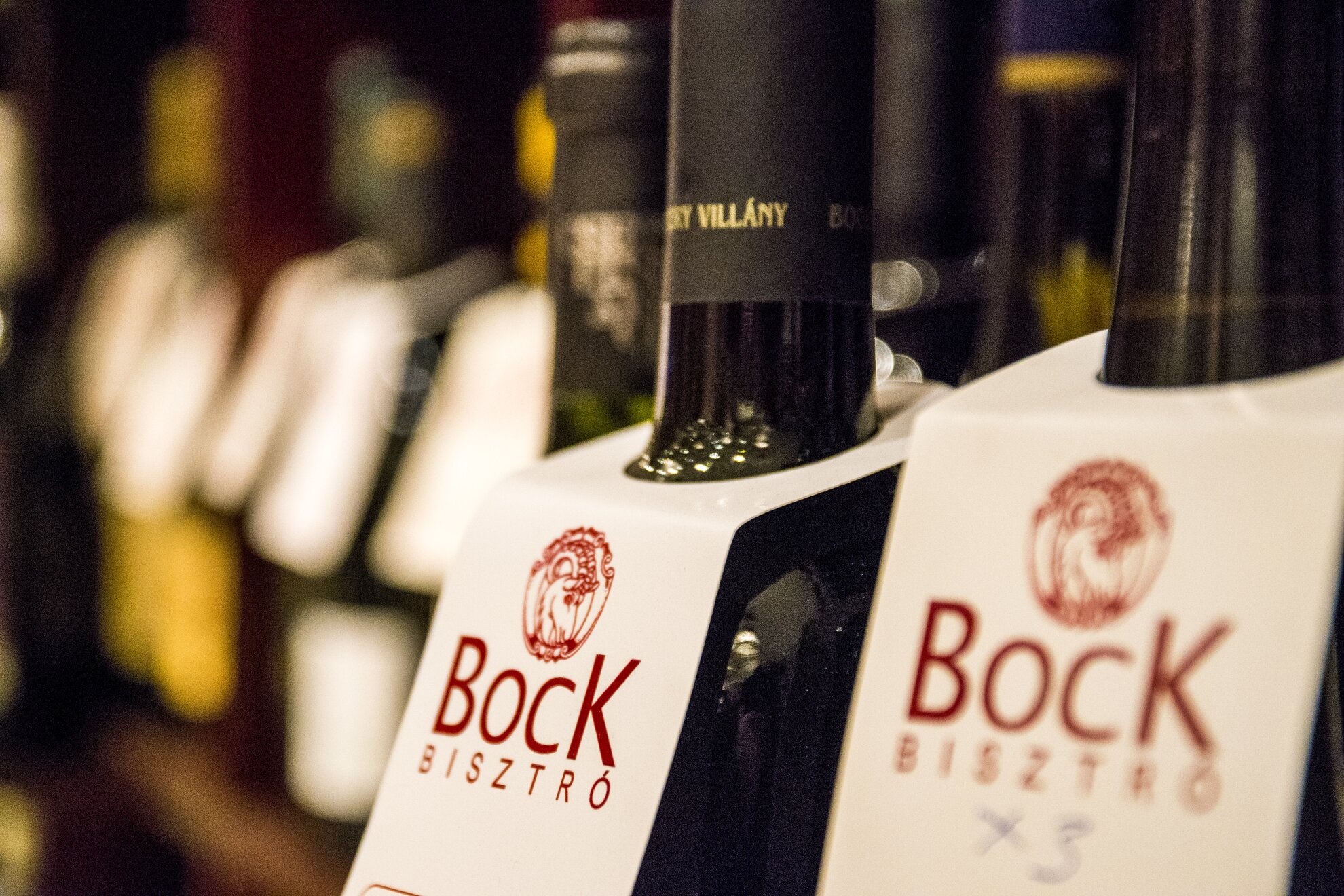
WLB: If I remember well Bock Bistro was more like a tapas bar in the beginning. What necessary changes have been made? How did the place come to be the place it is?
LB: It has never been a real tapas bar but this style was indeed even more emphasized than it is today. Truly enough, originally I wanted a tapas-style place but let’s not forget that at that time I was still working for Múzeum, too, and it wasn’t clear whether I could do the two restaurants at the same time. We founded Bock Bistro with two investors, both of them being financial experts, and good friends of mine. One of them, Kálmán Reményik told me that this business wouldn’t be lucrative and would die if it relies only on a wine shop, tapas, and wine tasting. We wouldn’t be able to even pay the rent. I, however, believed that just like in London, for example, the well-off managers would come after work to have a couple of glasses and some snacks. But Kálmán persisted and argued that this business will live only if it offers hot dishes, if it becomes a bistro. And this worked out for us, and we kept making changes. Now we offer breakfast, too.
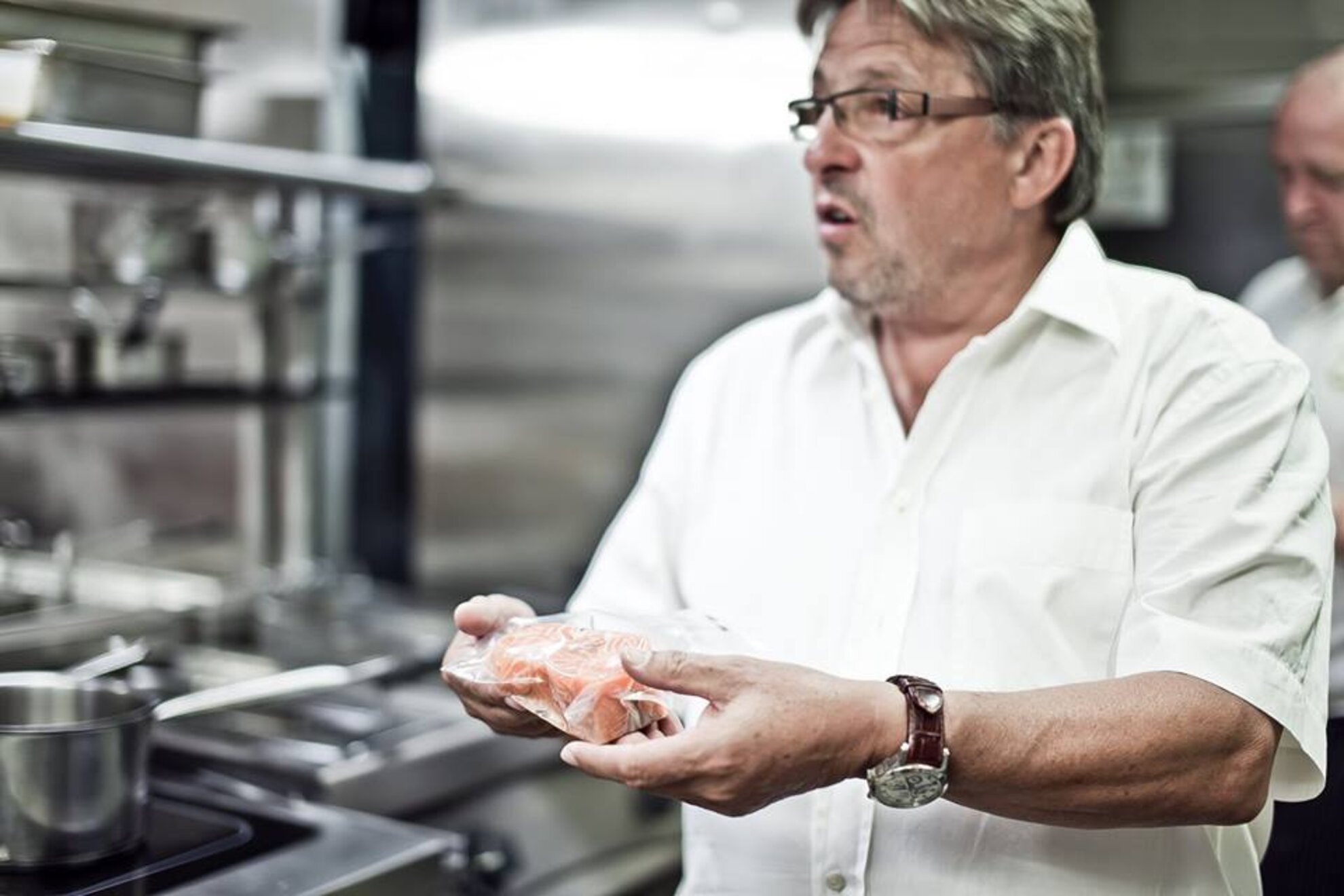
WLB: You are the first chef to become popular with a personal brand.
LB: Well, yes, I am the loud-mouthed, the self-satisfied one. Yeah, yeah, I know… My first “cookbook” was published last year, which is but more than a mere collection of recipes. It contains my life. The title is “I’m too much”. Well, this is me. This is the brand.
WLB: And are you happy with this?
LB: I’ve never said it explicitly that I’m happy with it, but this is me and I have to behave accordingly. It doesn’t bother me at all, anyway. In my professional career I’ve always worked in teams where teasing each other in a humorous and stylistic way was part of the job but avoiding offensiveness altogether. I love scandalizing people, or more like shocking people. And it’s pretty good that I can afford to do it. Though I have to work really hard to back this craziness all up. People tend to get full of themselves when in a high position. You can use it or abuse it. I think I used it pretty well. But I’m not considered to be among the more modest people in the profession. Since I was 14 this has been my hobby and my job.
So I’ve felt very good throughout my life. You can only perform really well if your job is your hobby at the same time, and vice versa, no matter what it is.
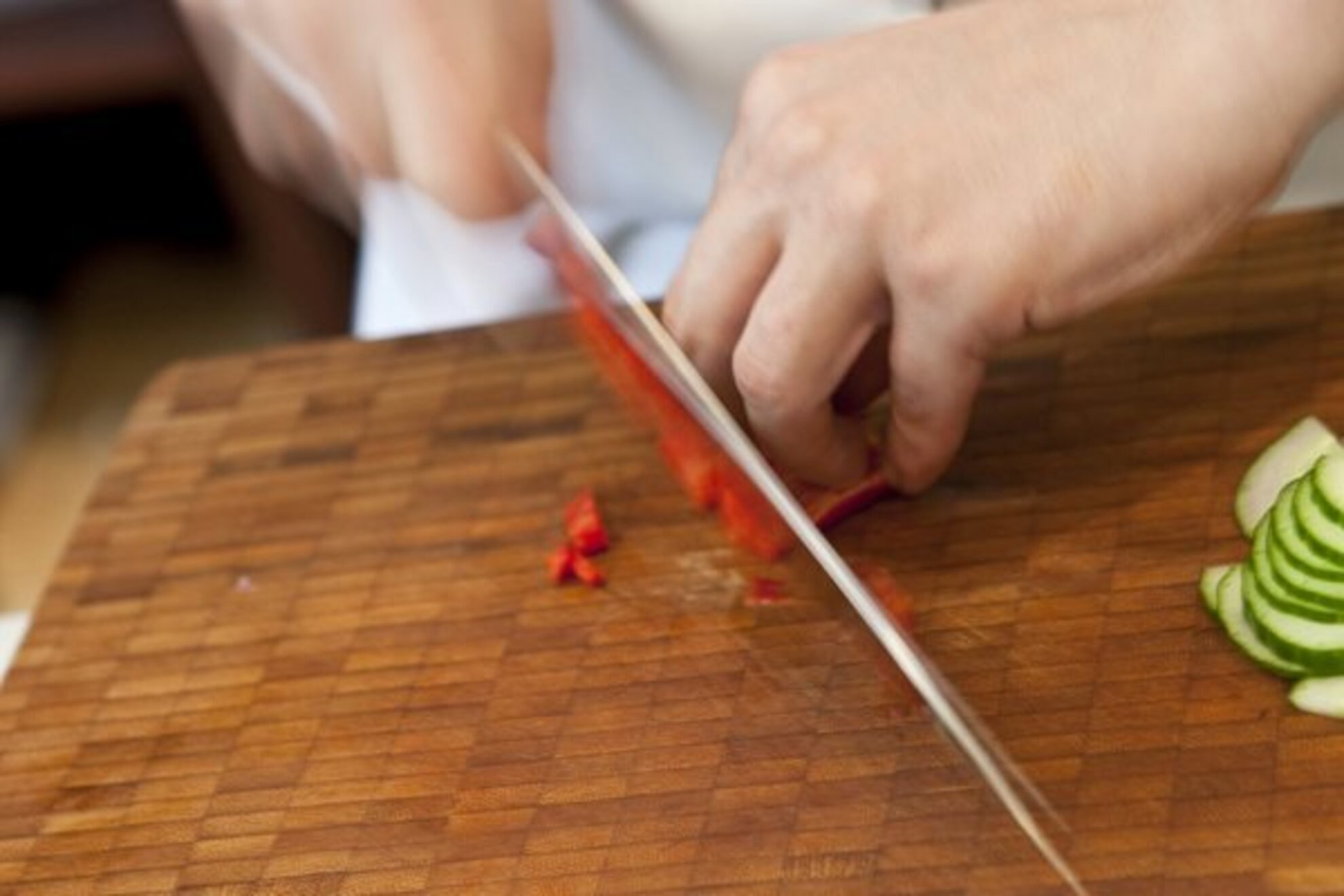
WLB: Bock is in the same building with Corinthia Hotel Royal. We understand that there’s no connection between the two of you, but how was it possible to open a successful restaurant right next to a hotel?
LB: A restaurant in a hotel is different: an elegant restaurant of an elegant hotel is obviously in line with the strategic aims of the hotel. Bock is unlike that in, for example, its entrance because it’s from the street and open to anybody. You don’t get the feeling that Bock is only for the residents. And it has become and is becoming a successful restaurant as we continue to create fine dishes in a good way. We, as a bistro, opened at a good and fortunate time. In Hungary Bock was the first bistro of this new type giving another meaning to the word that had meant something else before. Three years before the opening we had seen that bistros keep popping up abroad. At first I was afraid of the name “bistro”, due to its negative connotations stuck to it in the past, but then we went with it after making up our minds on a sailing trip.
We invited JózsefBock, who was also a good friend of all of us, to join us explicitly for marketing reasons. I think this was a great idea, and both of us benefited from it. Us from the Bock name, while him from the marketing of wines. I’ve never had such ideal partners before. No one tries to even make the slightest changes to the way I lead the kitchen and how I shape our cuisine, and, of course, I don’t meddle in the way he leads his winery. In financial issues I accept the advice of those who know better. The investors trusted me with my things, and I’m especially lucky because of this. Luck passes in front of everybody. You can either get on it, or you can’t. Some are talented enough to get on. In order that the restaurant works well is due to a lot of work.
In order to open a bistro at the right time a little luck, intuition and something more were needed. And this something more was to be found inside me.

WLB: What would you list as your personal successes?
LB: Up until 1976 I was a good waiter for one. I had a reputation at Pannónia Vendéglátó Vállalat (Pannónia Hospitality Company), both good and bad. I was fired from Volga Szálló (Hotel Volga), and started working for Olimpia Szálló (Hotel Olimpia). I was extremely vain even then. At ’71 it was a shame if you lacked some skill. My life since has been about proving that I’m among the best, or the best. And I could do it 70 % well. When I worked at the American Embassy, as I mentioned before, I had a good reputation as an embassy chef, and the residence itself had a favorable reputation, too. After that we created Vörös Sárkány, where György Kassai acted as manager, and I was merely the chef. It was the first Chinese restaurant and it was a hit. Múzeum Kávéház became successful in half a year, or one year, there was always full house, and had a solid place among the top 10 list of Hungary. Since 1981 I created three restaurants, and made all of them a success. Of course, I needed partners to do that.
WLB: In the first half a year after you opened the bistro you offered wines from abroad too. Don’ you think that foreign competition would do some good to Hungarian wines?
LB: I’m not sure that they should compete in Hungary. Only a few in Hungary can afford to use only Hungarian products. I’ve had Hungarian wines tasted in the company of foreigners a lot of times now and 7 to 8 times out of 10 the Hungarian ones were chosen the best. We want foreigners to get to know our wines this way, and none of our visitors have ever complained about it. Besides, I don’t like price-value relationship. It’s either good or not. Everybody will decide whether to pay its price or not.
Hungarian wines are extremely competitive in both their quality and their flavor. Most of the Hungarian vintners make relatively little amount of the many types of wines they offer, while, for example, the more noted French châteaus make more bottles of the fewer brands, thus having a better opportunity to appear on the market. I personally don’t feel we should put them on our menu, and our guests don’t complain, either.
Hungarians grew up on Hungarian wines, and they like it the same. We have 250-300 different types of wines, 40-50 of which we serve by the glass, too. This is the way it has developed. We don’t sell many wines in bottles. The guests rather just taste wines. We offer the whole Bock selection and other Hungarian wines chosen by ourselves. Cuki, the “spritzermaster”, the manager and an old colleague and friend, is responsible for our wine menu. Acclaimed wines don’t really sell nowadays. They are expensive, and people look for something exciting, something good. The guests are quite well-informed and well-educated. I always say that snobbery makes the world go round unless it’s exaggerated. I’m a snob myself, in a non-exaggerated way. I like snobs, we live off them (among others).
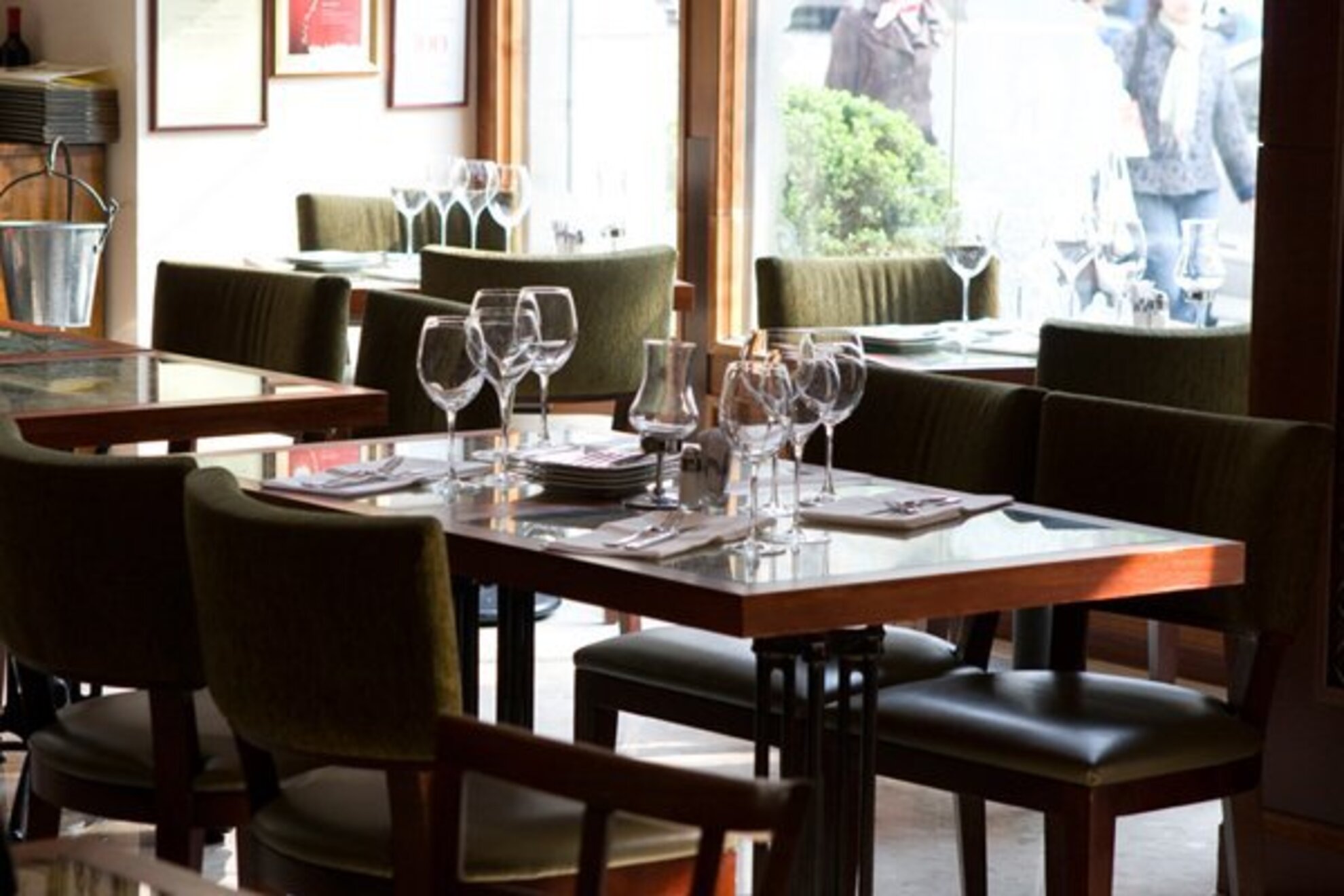
WLB: How do you feel about the progress of Hungarian gastronomy?
LB: It has improved a lot. The stars of Onyx and Costes gave a real push really, but in the race of the nations we’re still very behind.
WLB: What are your favorite techniques, spices, or ingredients?
LB: My favorite spices are dill and garlic. Molnár B. says I’m particularly fond of cream and paprika. True, I do use a lot of cream, but not because I like it but because it’s good to work with. I’m deeply in love with sous-vide but not as much as I was. I don’t do it as foolishly as I did before. Everybody falls for it, wanting to do everything sous-vide. Now I feel I understand what is good done this way, and what isn’t. I know what it makes actually better. Bock couldn’t run without sous-vide, it makes up for 60-70 % of our technology. That’s why I said that learning about it was such a milestone, for which I’ll always be grateful to János Kiss.

WLB: What are you plans, wishes, dreams for the future?
LB: First of all, being 40 again. We’ve struggling with opening a butcher’s shop for years. It didn’t work out so far, yet we’re not giving up. It would be good to open a BockBistro abroad, to see what we’re capable of in a tough international environment, and, of course, to make Hungarian flavors and gastronomic values known. We’re pretty deep in negotiations, and in 2-3 months we’ll know if it will succeed. (A Bock Bistro has been opened in Copenhagen, Denmark on 14 October.)
- Book: György Lissák: Ókori szerelmek (Loves of ancient times), Andor Kellér: Zöld gyep zöld asztal (Green lawn, green table)
- Music: Jazz, Benkó Dixieland Band
- Film:Battle of the Bulge
- Hobby:it was motorcycling and horse riding, now it’s sailing and skiing, but my main hobby is cooking
- Food:potato paprikash with cucumber salad
